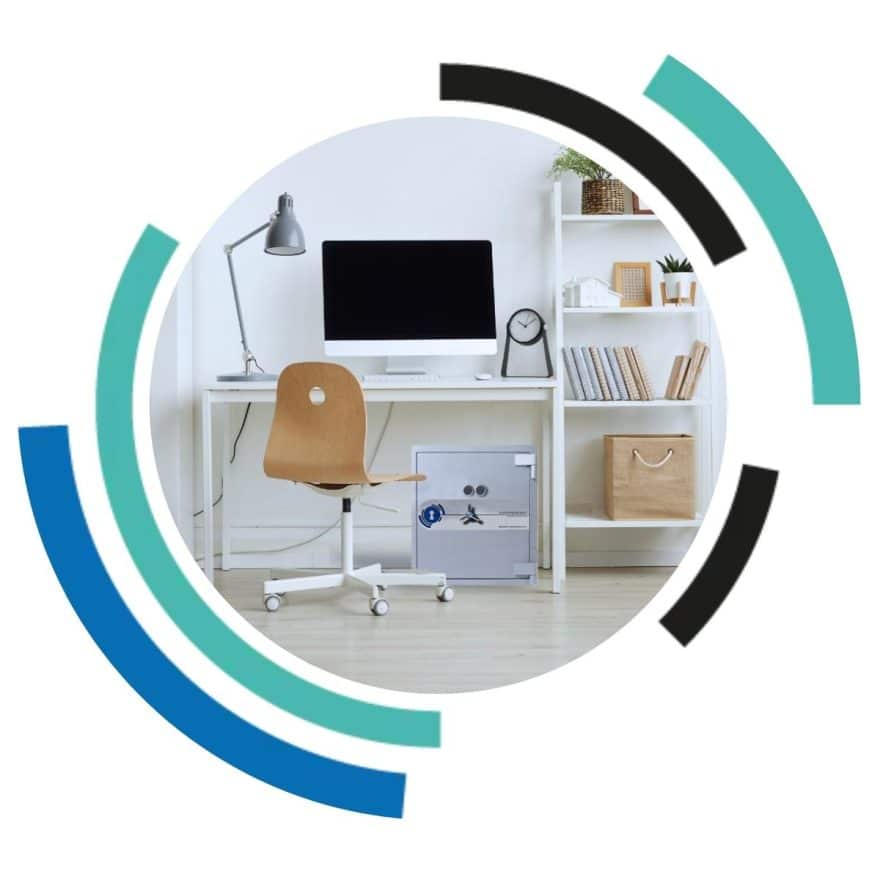Associated Security News
Password Security
10th May 2021
Password protection
we have been online for nearly 40 years, but we still don’t seem to have learned our lesson about online passwords, most recent studies show that 38% of people still use passwords like 12345 and password, and if you are using them passwords across multiple accounts ( like 91 % of online users do ) that puts all of your data at risk.
Way back in 2003, a manual was published by Bill Burr which was said to provide tips for password security. In his manual, Burr stated that passwords should be changed at least every 90 days, along with the suggestion that passwords should be formulated from mixed-up words, incorporating numbers and symbols. An example of what this means would be using ‘S3cur!ty’ as a replacement for ‘security’.
This manual is still to this day being re-published and used as a source for password security tips. The most recent re-release of this publication came out in June 2017 by the US Government National Institute of Standards and Technology.
However, cyber-security has come a long way in the past 18 years, so how can these more than decade-old tips still be relevant?
Since the manuals release 18 years ago, the author has now admitted that his tips may not have all been as beneficial as he had hoped. His original guidelines have been revised to almost state the opposite of his suggestions.
Here are some tips to ensure your passwords are as strong as possible
Make your password long,
By using a random mix of words as a password, specifically ones that don’t hold special meaning to you make it a lot harder to crack. Passwords such as ‘black&whit3raincoat’ aren’t likely to be figured out by hackers.
Include symbols and number in your password, things like using a @ instead of an A or a zero instead of an O al helps to make it a harder pass ord to crack
Keep away from personal information is always recommended, try not to use information that is easily discoverable such as date of birth, address or even phone number, nowadays most of this information is displayed on multiples social media platforms without you even realizing it.
Try not to reuse passwords, lost of the time if we are prompted to change a password for instance if the password is Homealone we will just and a number making it Homealone1, If your account is compromised and you use this email address and password combination across multiple sites, your information can be easily used to get into any of these other accounts.
Try using a passwords manager, many passwords manager services are free to use and often come with optional features such as synchronizing new passwords across multiple devices and monitoring your password habit to make sure you are not using the same one in too many locations.
Keep your passwords to yourself, Don’t give your passwords to anyone else. Don’t type your password into your device if you are within plain sight of others , do not put your password on a sticky note on your computer. try storing a list of your passwords—or even better, a password hint sheet—on your computer in a document file, give the file a random name so it isn’t a giveaway to prying eyes.
change your password periodically, as a rule, the more sensitive your information is the more often you should change your passwords, make sure that once you have changed it you don’t reuse the old password again within a short space of time or even better don’t reuse it at all.
Cyber-security is of course an essential part in ensuring your business is protected, but physical security is just as important. At Associated Security we have a range of security products as well as security cabinets via our eCommerce store to hold confidential documents that you may not wish to keep electronically stored.
Find out more about the products and services that we offer, if you want more information get in touch or call 0161 832 2777.
Get in Touch
Make an enquiry
PLEASE NOTE: Emails are monitored during normal office hours only. If you require urgent attendance of a locksmith or safe engineer please call our help desk on 0161 832 2777.



